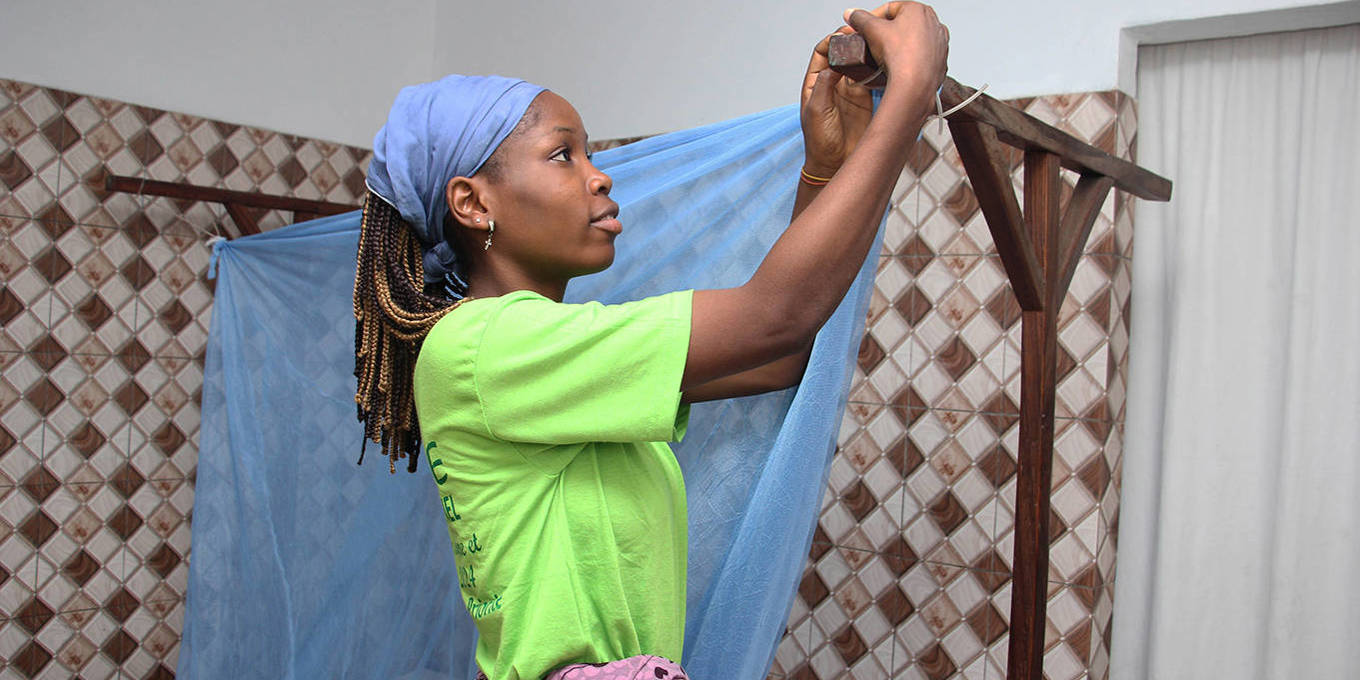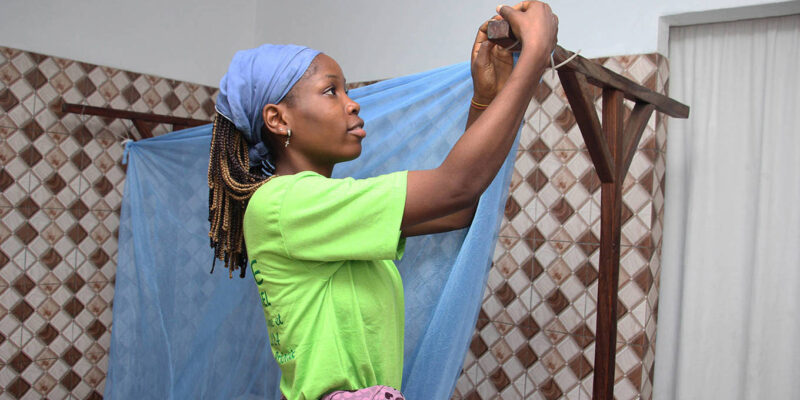
Africa has disproportionately suffered the effects of malaria for far too long. But the continent can eliminate this scourge by 2040 with well-targeted public investment in a strong surveillance system, a well-trained health workforce, effective vector control, and rapid outbreak-response mechanisms.
ADDIS ABABA – Despite being preventable and curable, malaria has continued to claim African lives. In 2023, the continent accounted for around 95% of the 597,000 deaths from malaria worldwide, 76% of which were children under the age of five.
- Europe’s Existential Choice
 Olivier Chassignole/AFP via Getty Images
Olivier Chassignole/AFP via Getty Images - The Green Key to Germany’s Economic Recovery
 Jochen Eckel/Getty Images
Jochen Eckel/Getty Images - Russia’s Two Minds on Ukraine
 Alexander Vilf/Host Photo Agency via Getty Images
Alexander Vilf/Host Photo Agency via Getty Images
But eliminating this scourge, which impedes development goals and realization of the African Union’s Agenda 2063, is within reach. Nine AU member countries – Algeria, Cabo Verde, Egypt, Lesotho, Libya, Mauritius, Morocco, the Seychelles, and Tunisia – have become malaria-free, owing to sustained political commitment and well-targeted public investment in primary health care and disease surveillance and case management. African countries with a higher malaria burden should heed their example.
Algeria, for example, invested in effective vector control through indoor residual spraying, universal health-care access for malaria diagnosis and treatment, and rapid outbreak-response mechanisms. Cabo Verde’s strategic malaria-elimination plan involved a multisectoral approach, whereby the government worked closely with local communities and international organizations. Egypt’s multipronged strategy included, among other things, robust training programs for primary health workers. Implementing these coordinated interventions required the political will and, crucially, increased domestic financing.
Overall, Africa’s efforts to control malaria – particularly through the use of insecticide-treated nets, indoor spraying, and seasonal chemoprevention (which involves giving children a monthly course of antimalarial medicines) – have driven a notable decline in malaria deaths on the continent, from 805,000 in 2000 to 569,000 in 2023. (The COVID-19 pandemic, coupled with the emergence of partial resistance to the well-established malaria medicine artemisinin, caused a brief uptick, to 598,000, in 2020.)
But these gains are fragile, particularly as new mosquito variants emerge, insecticide resistance grows, climate change worsens, humanitarian crises become more frequent, and, perhaps most importantly, the global malaria-funding gap widens. In 2023, only $4 billion was mobilized for malaria elimination, far below the $8.3 billion annual target, and a slight drop from the $4.1 billion raised in 2022. The problem is even more acute in Africa, where external health aid has declined by a whopping 70% between 2021 and 2025. Moreover, most African countries devote less than 10% of their national budgets to the health sector – well below the 15% target set by the 2001 Abuja Declaration.
Given the uncertain future of foreign aid, African governments must recognize malaria as a development priority and invest more in efforts to control and eliminate it. That means leveraging untapped resources, including the more than $95 billion in annual remittances from the African diaspora. Innovative financing instruments such as diaspora bonds could support the continent’s public-health agenda. Solidarity levies on tobacco, alcohol, mobile transactions, and airline tickets could also generate billions of dollars for health services. And scaling up national health-insurance schemes will be required to expand access to malaria prevention, diagnosis, and treatment.
Introducing Project Syndicate’s Forward Thinkers List 
Introducing Project Syndicate’s Forward Thinkers List
Our Forward Thinkers list recognizes and spotlights intellectual innovators poised to shape international debates in the years ahead. It brings together 30 influential individuals from academia, policymaking, civil society, and the private sector — voices challenging conventional wisdom and blazing a new path.
Meet the Forward Thinkers
Blended finance can unlock private capital for malaria-related research and development, as well as local manufacturing of therapeutics. With Africa’s health-care market projected to be worth $259 billion by 2030, policymakers should capitalize on this opportunity to create effective public-private partnerships, advance last-mile delivery solutions, and improve surveillance and vector control.
This would be an investment in Africa’s present and future, because every dollar spent on malaria control and elimination generates a remarkable return of $36 in economic growth. A malaria-free population is more likely to access education and contribute to the continent’s socioeconomic development. And let me be clear: investing in the fight to end malaria is not only a health and economic imperative; it is an act of justice. The disease disproportionately affects the poorest and most vulnerable Africans, perpetuating cycles of poverty and inequality.
Last year, I joined health ministers from 11 AU member countries with high malaria burdens in committing to accelerate efforts to reduce deaths from the disease. As part of the declaration, we agreed that “no one should die from malaria given the tools and systems available.”
The task now is to take concrete action. The Africa Centers for Disease Control and Prevention (of which I am Director-General) is ready to help develop a continental strategy for ending malaria in Africa by 2040. By making smart investments, implementing well-targeted policies, and deepening collaboration, we can ensure that all African countries become malaria-free within the coming generation.











Comments